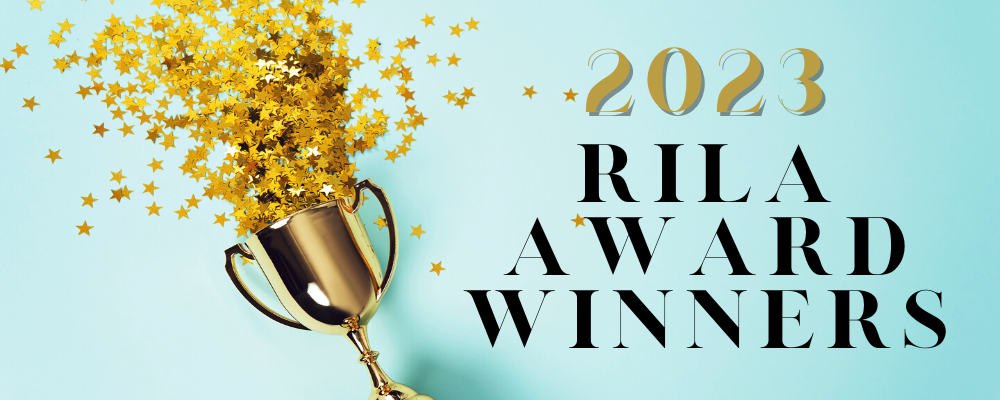 The Rhode Island Library Association (RILA) presented its yearly awards at its Annual Conference, which was held May 24 and 25 at the Providence Public Library. The theme for the conference was “Keep Calm and Read On.”
The Rhode Island Library Association (RILA) presented its yearly awards at its Annual Conference, which was held May 24 and 25 at the Providence Public Library. The theme for the conference was “Keep Calm and Read On.”
"This year’s award recipients are truly deserving of this honor,” said RILA President Beatrice Pulliam. “We were so fortunate to have each of our honorees present at our awards reception and be able to celebrate their achievements in front of their friends and family."
The 2023 RILA Award winners are:
Library Champion Award: Senator Hanna Gallo, District 27, Cranston and West Warwick.
Senator
Gallo is one of the most active supporters of libraries in the General Assembly. She has been an important ally as RILA advocated for full funding of state grant-in-aid to Rhode Island’s public libraries.
Her advocacy was instrumental in state aid increases including $900,000 in 2017, $200,000 in 2019 and finally achieving full funding with an additional $1.5 million in 2022.
For the past eleven years she has supported her local Cranston Public Library with legislative grants that have been used to support youth services programs across the CPL system.
“Senator Hanna Gallo has been a true friend and champion to our libraries and we look forward to working with her for years to come,” said Ed Garcia, director of the Cranston Public Library.
Outstanding Librarian Award: Chaichin Chen, Resource Sharing Coordinator, Office of Library and Information Services.
Chen retired from the Office of Library and Information Services in 2022 after 25 years of serving the state. She served as Resource Sharing and Network Services Coordinator. Chen’s long commitment to resource sharing culminated in the development of the regional Sharing Visions summit that began in 2020 and brought together state library agency staff and librarians from across New England. Her unfailingly pleasant demeanor and extensive knowledge made technical innovations that much easier for library staff.
“Chaichin leaves big shoes to fill at the Office of Library and Information Services, and will be much missed here and in the library community,” said Karen Mellor, Chief of Library Services for the state of Rhode Island.
Outstanding Library Paraprofessional Award: Maria Melvin, Human Resources Coordinator, Community Libraries of Providence.
Melvin operates a complex human resources department single-handedly, handling benefits, payroll, and maintaining accurate files for all staff. As the Human Resources Manager, Melvin is an integral part of the union negotiating committee, prepares job descriptions, participates in every interview, and onboards all new staff. When staff are out on medical or other leaves, Melvin is sure to send flowers and cards on behalf of the library.
“Despite her deep well of responsibilities, she also finds time to uplift the staff and to bring joy, and tons of fun, to every gathering. She loves the Community Libraries of Providence and is dedicated to the mission of the library. She is always willing to do the work to make change possible,” said Cheryl Space, director of the Community Libraries of Providence.
Meritorious Friend of the Library Award: Josephine Sassi, Friends of the West Warwick Public Library.
Sassi has been a tireless and dedicated supporter of the West Warwick Public Library for well over a decade. She currently supervises a group of volunteers who stock and run the “Book Nook”, the library store through which the Friends raise funds for library programming and services. She is responsible for the Friends’ gift basket raffles, which happen twice a year. The displays are so professionally done and elaborate that they draw people into the library who might not otherwise visit, and raise substantial and much-needed funds for the library.
“Her multiple contributions to the life of the West Warwick library are made in a manner that is utterly dependable but also utterly unassuming. Without her presence, the library would be a poorer place – literally as well as figuratively,” said Colin McCullough, director of the West Warwick Public Library.
Trustee of the Year Award: Ken Findlay, Board of Trustees, Exeter Public Library.
Findlay has worked tirelessly to improve the library’s standing and base of support. His experience as Assistant to the Town Council has been invaluable in guiding the library’s many projects and initiatives, from launching a new website to major building repairs. In addition, as Interdepartmental Project Manager/Institutional Programs and Services for the RI Department of Corrections, Ken serves on the State Library Board representing the interests of incarcerated persons. He exemplifies in every way the qualities that RILA has identified in a Trustee of the Year.
“As a result of Ken’s leadership, the library’s standing towards the community has comprehensively improved. Ken has expertly and patiently shepherded numerous items through the necessary processes to ensure their success,” said Tien Tran, director of the Exeter Public Library.
The Rhode Island Library Association is a professional organization that serves its members through career development, education, advocacy, networking partnerships, and legislative action. The core vision of RILA is to inspire and promote excellence in library services, through training, innovation, and advocacy.
